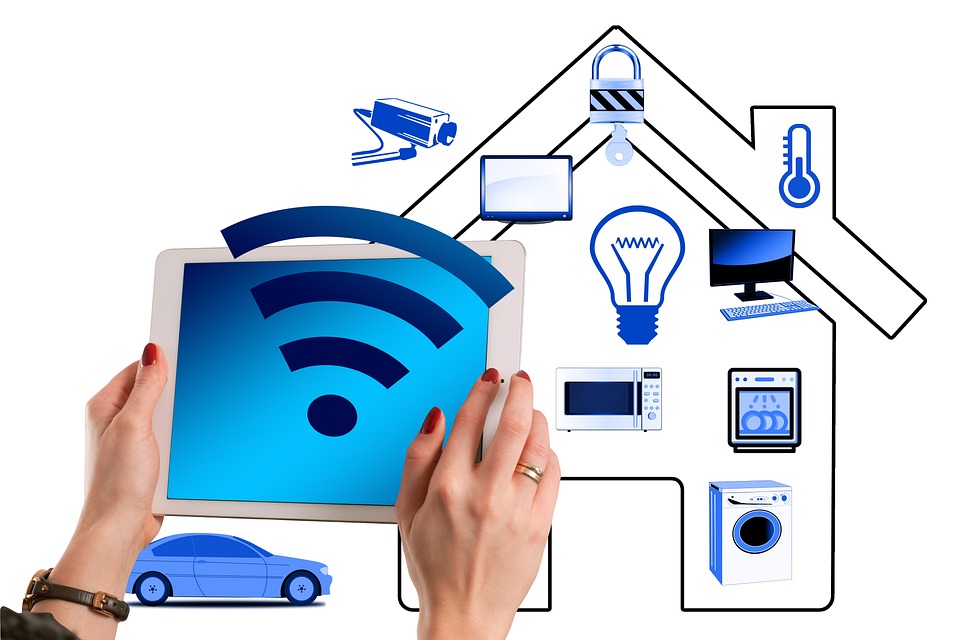A Deep Dive into Energy Efficiency for Your Home
Harnessing Energy Efficiency: An Introduction
In an era where sustainability is at the forefront of global consciousness, energy efficiency has become a key consideration for homeowners seeking to reduce their environmental impact and save on utility costs. From simple lifestyle changes to advanced technologies, the journey to an energy-efficient home is a multifaceted approach that benefits both the planet and your pocket. Let’s explore the principles, strategies, and innovations that can help you energize your home with efficiency.
- Understanding Energy Efficiency
Energy efficiency is about optimizing the use of energy to achieve the desired outcome while minimizing waste. In a home context, this means using energy in a way that reduces consumption, lowers utility bills, and decreases the environmental impact associated with energy production.
The Fundamentals of Energy Efficiency
- Home Insulation
Proper insulation is the foundation of energy efficiency. Well-insulated homes maintain a consistent indoor temperature, reducing the need for excessive heating or cooling. Insulate walls, attics, and crawl spaces to create a thermal barrier that prevents heat transfer.
- Energy-Efficient Windows and Doors
Windows and doors are potential sources of energy loss. Install energy-efficient windows with double or triple panes and low-emissivity coatings to minimize heat transfer. Weatherstrip doors to prevent drafts and ensure a tight seal.
- High-Efficiency HVAC Systems
Heating, ventilation, and air conditioning (HVAC) systems are major contributors to energy consumption. Upgrade to high-efficiency models that meet ENERGY STAR standards, ensuring optimal performance and reduced energy usage.
- Energy-Efficient Lighting
Replace traditional incandescent bulbs with energy-efficient alternatives like LED or CFL bulbs. These options not only use less energy but also have longer lifespans, reducing the frequency of replacements.
Sustainable Living Starts at Home: A Guide to Implementing Energy Efficiency Practices
For individuals committed to sustainable living, implementing energy efficiency practices at home is a fundamental step. This comprehensive guide explores strategies for reducing energy consumption and embracing sustainability within the home environment.
Strategies for Enhancing Energy Efficiency
- Smart Thermostats
Smart thermostats offer precision in temperature control by learning and adapting to your daily routines. They can be programmed to adjust temperatures based on occupancy, time of day, and weather conditions, optimizing energy use and reducing heating and cooling costs.
- Energy-Efficient Appliances
Upgrade to ENERGY STAR-rated appliances, which meet strict energy efficiency guidelines set by the U.S. Environmental Protection Agency. Energy-efficient appliances consume less electricity, resulting in long-term cost savings and a reduced carbon footprint.
- Renewable Energy Sources
Consider incorporating renewable energy sources into your home, such as solar panels or wind turbines. These technologies harness the power of the sun or wind to generate electricity, providing a clean and sustainable alternative to traditional energy sources.
- Home Energy Audits
Conduct a home energy audit to identify areas of inefficiency. Professional auditors use tools and techniques to assess your home’s energy performance, offering recommendations for improvements that can enhance overall efficiency.
Advanced Innovations in Energy Efficiency
- Energy Storage Solutions
Energy storage solutions, such as home battery systems, allow homeowners to store excess energy generated by renewable sources. This stored energy can be utilized during periods of low energy production or high demand, providing increased flexibility and resilience.
- Smart Grid Technology
Smart grid technology enhances the efficiency of energy distribution by incorporating digital communication and control capabilities. It enables two-way communication between utilities and consumers, optimizing energy consumption and reducing grid stress.
- Building Automation Systems
Building automation systems use sensors and controls to manage various aspects of a home’s energy consumption, including lighting, HVAC systems, and appliances. These systems can be programmed to adjust settings based on occupancy and energy demand.
- Energy-Efficient Building Materials
Incorporate energy-efficient building materials into home construction or renovation projects. Materials with high thermal resistance, such as insulated concrete or advanced framing techniques, contribute to improved energy efficiency and long-term sustainability.
Empowering Tomorrow: The Role of Energy Efficiency in Sustainable Home Design
For those envisioning a sustainable future, understanding the integral role of energy efficiency in home design is essential. Explore the principles and practices that empower sustainable living and contribute to a greener tomorrow.
Cultivating a Culture of Energy Efficiency
- Behavioral Changes
Simple changes in behavior can contribute significantly to energy efficiency. Turn off lights and appliances when not in use, unplug chargers, and adopt energy-conscious habits to reduce unnecessary consumption.
- Regular Maintenance
Perform regular maintenance on HVAC systems, appliances, and other energy-consuming devices. Cleaning filters, checking for leaks, and ensuring proper functioning not only improve efficiency but also extend the lifespan of equipment.
- Education and Awareness
Educate yourself and your household members about the importance of energy efficiency. Promote awareness of energy-saving practices and encourage responsible energy use to create a culture of sustainability within your home.
- Government Incentives and Rebates
Explore available government incentives and rebates for energy-efficient upgrades. Many governments offer financial incentives to homeowners who invest in energy-efficient technologies, making sustainable choices more accessible and affordable.
Conclusion: Powering the Future with Energy Efficiency
In conclusion, energy efficiency is a powerful tool for homeowners seeking to reduce environmental impact, cut utility costs, and contribute to a sustainable future. From foundational strategies like insulation and efficient appliances to cutting-edge innovations such as smart grids and renewable energy sources,



